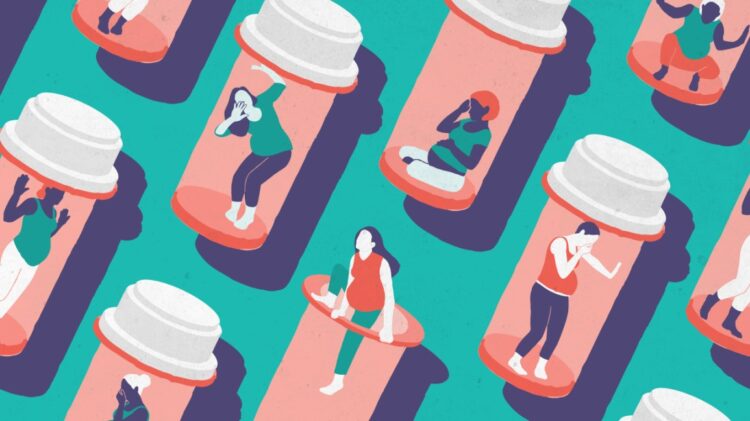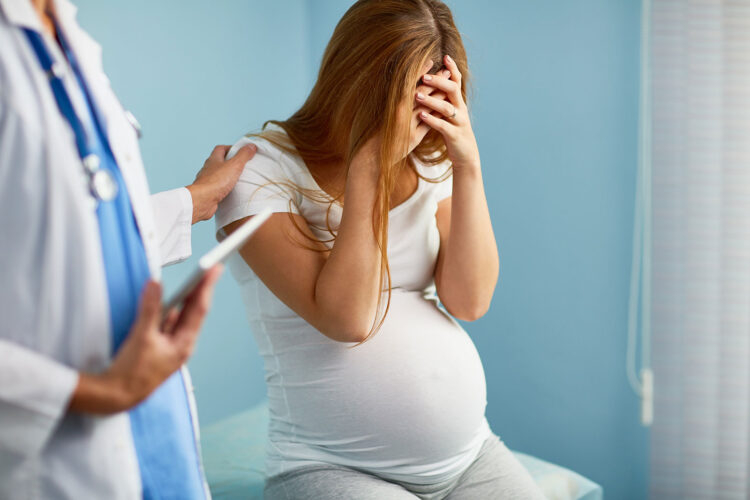Being pregnant isn’t easy in the U.S. From the moment she’s announcing her pregnancy, the attention shifts toward the health of the baby, which can be problematic for women dealing with addiction.
Is opioid addiction common amongst pregnant women?

Sadly, a third of Americans know a person who dealt with opioid addiction at some point in their life. Even if there are so many people dealing with opioid addiction, the social stigma didn’t disappear, and it’s undoubtedly incredibly tricky for pregnant women. When they don’t stop abusing, the risk for their baby to be born with neonatal abstinence syndrome (NAS) is quite high. On the cause of the shame connected to opioid use, many pregnant women hide their addiction and don’t even look for treatment, which only increases the risk for their babies.
“Being an addict and pregnant at the same time only makes it unbearable for women,” says Alissa Jones, an assistant professor with plenty of experience in substance abuse treatment during pregnancy. Opioids, along with prescribed medications and heroin, may cause low birth weight, placental abruption, stillbirths, premature births, SIDs, and NAS. The baby becomes addicted to substances in the same way the mother does. Once the baby is born, the baby will experience the withdrawal symptoms too, and they’re healthy and significant for a small and fragile body of a newborn.
Currently, the US is going through an opioid crisis, and the number of women dealing with this problem is rising. Plenty of members of the medical community look for solutions for getting clean. But for pregnant women, the problem is more complicated, as there are risks associated with the treatment for them.
Is the alcohol addiction of the mother dangerous for the unborn child?

It’s not news, but drinking alcohol throughout pregnancy may cause congenital disabilities such as issues with the heart, bones, kidneys, and hearing. Newborns may also suffer from Fetal Alcohol Syndrome, Alcohol-Related Neurodevelopmental disorder, and even death.
Fetal Alcohol Spectrum Disorders happens when the mother consumes alcohol, passing it through the umbilical cord to the unborn baby. It can lead to learning, physical, and behavioral problems for the child.
Marijuana is also harmful during pregnancy, as it can cause low birth weight, stillbirth, and premature birth. Behavioral and developmental issues, along with withdrawal symptoms, are also common.
Placental abruptions, low birth weight, premature birth, small head circumference, and even miscarriage are the common problems associated with using cocaine throughout pregnancy.
Regardless of what one may think, using inhalants is also dangerous for the baby, with skeletal abnormalities, low birth weights, delayed brain development, and weight gain as main effects.
As you can see, there are numerous and severe consequences when the pregnant woman is abusing various substances. Taking the necessary steps for her treatment is essential for both the mother and the unborn child. If you need more help you can always go to treatment centers like the Nexus Recovery Services.
Should pregnant women go with alternative treatment for their addiction?

It’s essential for pregnant women dealing with addiction to look for treatment as soon as possible. The sooner they reach for help, the better the chances for them to heal.
“Pregnant women should also look into the alternative healing methods, as they’re more effective for them and their child,” states Johnny Tabaie, the creator of the Pouyan Method, which helps people with addictions of any kind. Not only that, but the alternative healing treatments are customized to their personal needs and specifics, but they are also various and numerous. The patient, no matter if it’s a pregnant woman or not, can choose the methods that fit their personality and level of addiction the best way. “We all know that pregnant women like pampering, which is something that they can find in a holistic facility such as ours,” adds Johnny Tabaie. The high-end amenities, the locations with astonishing views, and the 24/7 supervision are some of the selling points for the alternative healing centers, for sure. We can find more information on Johnny’s website.
Pregnant women shouldn’t try to solve their addiction on their own. Both the pregnant woman and the baby need professional supervision, especially throughout the withdrawal process. They can still look in conventional rehab programs, but they’re not going to find the same level of care and attention they will find at alternative and holistic centers.
The final takeaway for pregnant women is that they need to address their addiction asap so that the chance for them and their babies to be healthy is higher.
What happens when a child is born with NAS?
The numbers provided by the National Institute on Drug Abuse (NIDA) are scary, as the percentage of children born with NAS increased five times in over a decade. A baby born with NAS will develop severe symptoms such as irritability, high-pitched crying, tremors, poor feeding, and even seizures. And that’s in the first 24 hours after birth. Plenty of newborns will need pharmacologic intervention, with morphine or methadone as leading solutions. It’s going to take a couple of weeks until the opioids will be eliminated slowly from their life so that the babies get to live a drug-free life.
According to Michael Peters, an experienced neonatologist, not all newborns with symptoms of opioid exposure have to take medication. Plenty of doctors are keen on using various approaches before the severe NAS symptoms develop. We’re talking about experimental programs that are rather new and used for all opioid-exposed newborns. The methods are concentrating on providing environmental changes that would improve babies’ comfort. Keeping the mother together with her child as long as possible, sustaining breastfeeding, and encouraging the connection between the mother and her family are efficient methods. On the side note, it seems that breastfeeding will reduce the severity of withdrawal in newborns.
The results give hope to everyone. Most of the babies with NAS remain in the hospitals for more than 100days, whereas the babies with opioid-exposure typically spend five days in the hospital. Babies born with NAS will stay for 13 days or so, and children requiring pharmacological treatment may spend almost 20 days in the hospital.
Mothers to be should understand that opioid-related NAS doesn’t have to lead to long-lasting consequences as it’s not only the opioid exposure that affects the babies on a cognitive and physical level. Alcohol exposure is also harmful, causing damage to a baby for a long time.
 Hi Boox Popular Magazine 2024
Hi Boox Popular Magazine 2024



